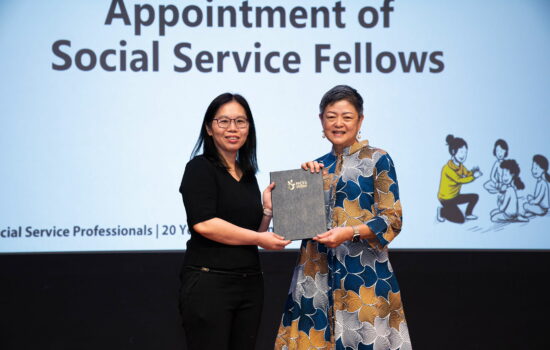Key takeaways:
- SPD has started the SEER programme to help provide home rehabilitation for seniors with low vision.
- The seniors are aided through recommended strategies and modified tasks to make their home environment safer and easier to navigate on their own.
SPD has started providing home therapy for seniors with low vision under the Senior Eye Rehabilitation (SEER) Programme since January this year. The work of the occupational therapists helps make living at home alone much safer for seniors with low vision through recommending strategies and modifying everyday tasks.
SPD has started providing home therapy for seniors with low vision under the Senior Eye Rehabilitation (SEER) Programme since January this year.
The SEER pilot programme is a partnership by Agency for Integrated Care (AIC) and Temasek Foundation Cares to build community capability in low vision rehabilitation for seniors. Two occupational therapists (OTs) from SPD were trained to provide home rehabilitation for seniors with low vision.
“The training included clinic and home-based observational sessions with the hospital OTs which allows me to understand the transition of client care at home. I am able to better identify the challenges seniors face and to help them in their home environment in the community setting,” said Ms. Ong Yu Yuan, one of the OTs who underwent the training.
The programme aims to enable seniors with low vision to function safely and independently in their homes. The OTs may prescribe adaptive equipment, recommend strategies, or modify tasks to optimise the safety and independence of the seniors within his/her home environment.

Using magnifying devices is one of the many ways visual challenges can be overcome.
A senior in his 70s, who was diagnosed with glaucoma in both eyes resulting in blurred and reduced vision, is one such beneficiary. The OT worked with him to help make his home environment safer for him to move around. He was taught to organise his belongings and place frequently used items within reach. He was also assisted to organise his home screen, and changed his wallpaper to a plain black background so that he could see and access the functions more easily.

Placing kitchen items in a neat and orderly manner, coupled with a neat tablecloth help to aid seniors who are visually impaired.
Another beneficiary is a senior in her 50s who has low vision since birth. The OT assessed how the senior cooks on the gas stove as she sometimes gets hurt by accident when cooking. The senior was advised to use gloves to protect herself against the heat and cook in smaller quantities to prevent spillage. As the senior has difficulty seeing and gathering the dust on the ground when sweeping, the OT advised her to use a wiper mop instead. She was able to maintain her home cleanliness more efficiently after the home rehabilitation sessions.
This pilot programme will run until December 2018 and is currently open to seniors who are 50 years old and above. Seniors following-up with the ophthalmology department (eye specialists) at National University Hospital (NUH) or Singapore National Eye Centre (SNEC) can enquire about the programme through their doctors. Other seniors and caregivers may enquire through seer@aic.sg or call the Singapore Silver Line at 1800-650-6060 for more information.





